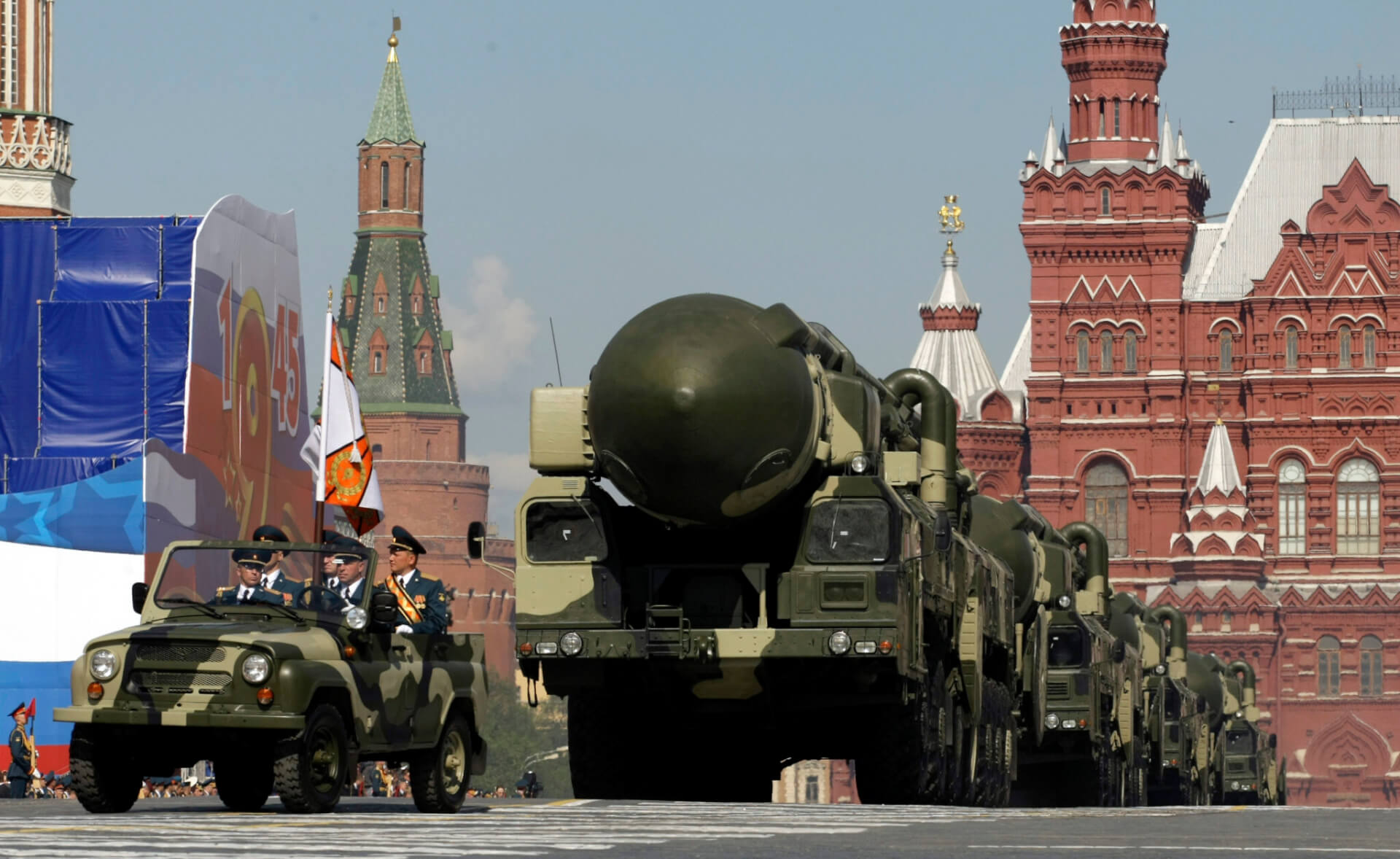As Ukrainian forces continue to re-capture territory from the Russian military and as Kyiv is bestowed with an uninterrupted supply of money and weapons from the West, Russia appears to have lost clarity of its goals in Ukraine. Yet, just when it seemed that the Kremlin’s war machine is on the back foot and Moscow could eventually lose the war it started, Vladimir Putin pulled out the nuclear card from his wallet. Putin has warned his opponents that he will not shy away from making use of “all weapon systems” to win the war. His allies in the Kremlin have doubled down on his rhetoric, claiming that Russia could use nuclear weapons.
While there might be a case to dismiss Putin’s threats as bluster on account of Russia’s spiralling misfortunes in Ukraine, it is unwise to completely dismiss them.
Russia’s nuclear doctrine underscores that it has a ‘first use’ policy, which means that Moscow would use nuclear weapons if its security and sovereignty are in great danger. The doctrine enables the use of tactical and limited nuclear strikes to put an end to an adversary’s attack, even if the attack does not involve nuclear weapons. The policy stresses that the probability of nuclear warfare would be higher in any armed conflict with the United States or the North Atlantic Treaty Organization (NATO). This doctrine, known as the “escalate to de-escalate” policy, has been endorsed by top-level military and civilian officials. Therefore, given Russia’s mounting losses in Ukraine and the US and NATO’s active support for Kyiv, the nuclear option remains firmly on the table.
International relations scholar Stephen Walt argues that Russia is more likely to use nuclear weapons against the Ukrainian military, which has, of late, won several battles and put Putin’s soldiers on the back foot. Walt states that countries tend to escalate their rhetoric when “failing to achieve their war aims and may even be facing the possibility of a major defeat.” He thus notes that Russia could see the limited use of nuclear weapons as an attractive option to sure a quick victory. Walt cites the examples of Germany during World War I and the United States (US) during the Vietnam war, when both countries indiscriminately bombed civilian targets following their inability to achieve victory.
A more recent example is the case of North Korea, which has been conducting nuclear tests and launching ballistic missiles despite warnings and severe sanctions by the international community. Pyongyang has resorted to this aggressive course of action because peace and abandoning nuclear weapons would severely dent its leverage and bargaining power.
Russia’s annexation of four Ukrainian territories—Donetsk, Kherson, Luhansk, and Zaporizhzhia—only increases the nuclear threat. Annexing the regions allows Moscow to consider them as sovereign Russian territory. Hence, any attempt by Ukraine to take back these regions could be viewed by Russia as a significant territorial threat that warrants the use of nuclear weapons. According to Russia expert Emma Ashford, the annexations would provide Putin with a pretext to justify the use of nuclear weapons.
The seriousness of Putin’s nuclear threat has also been emphasised by the West, particularly the US and Ukraine. Ukrainian President Volodymyr Zelensky has warned that Russia has begun to “prepare their society” for the possible use of nuclear weapons and urged the West to impose even harsher sanctions on Moscow. US President Joe Biden has said that Putin’s threats risk nuclear “Armageddon.” “We have not faced the prospect of Armageddon since Kennedy and the Cuban Missile Crisis” of 1962, Biden said last week.
However, by choosing the nuclear option, Putin risks losing Russia’s diplomatic standing altogether and incurring the full wrath of the West. China has so far supported Russia’s actions in Ukraine in international fora; however, Beijing has in recent weeks expressed increasing concern about Russia’s indiscriminate bombings in civilian areas. Therefore, it is very possible that China, which has exponentially increased its purchase of Russian oil and repeatedly stood by Russia in multilateral fora, views the use of nuclear weapons as a ‘red line,’ wherein it could cut diplomatic and financial support.
Using nuclear weapons in Ukraine could spell disaster for Russian citizens as well. The radiation emitted from an attack on neighbouring Ukraine could easily spill over into Russia and result in numerous fatalities. Such an event could result in widespread discontent among Russians, who are already tired of the war and are fleeing the country in droves to avoid military conscription.
In addition, Western military officials have threatened to retaliate militarily if Russia launches a nuclear attack. Last month, former US military general and CIA director David Petraeus warned that in the event Russia uses nuclear weapons, the US would obliterate the Russian army in Ukraine and the entire Black Sea Fleet. The G7 has also warned Russia of “severe consequences” if it uses nuclear weapons.
While there is a chance that Putin might consider the risks associated with using nuclear weapons and refrain from taking such a drastic step, the Russian President’s next move is unpredictable. This war has shown that Putin’s proclivity for recklessness far outweighs his preference for caution, as seen in his move to annex Ukrainian territories despite sustaining significant losses and repeated attacks on the Zaporizhzhia nuclear plant. Keeping this in mind, Putin’s threat to use nuclear weapons is credible and remains a key policy option that will only begin to appear more attractive as the war drags on and Russia’s losses continue to pile up.
Putin’s Threat to Push the Nuclear Button Is No Hoax
This war has shown that Putin’s proclivity for recklessness far outweighs his preference for caution, as seen in his move to annex Ukrainian territories and attack the Zaporizhzhia nuclear plant.
October 13, 2022

A column of Russia's Topol intercontinental ballistic missiles rolls across Moscow's Red Square, during the annual Victory Day parade, 2009 IMAGE SOURCE: IVAN SEKRETAREV/AP
